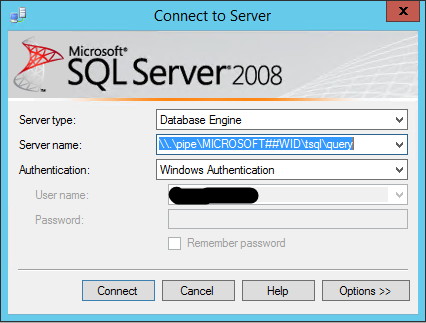- June 3, 2017
- Posted by: Surender Kumar
- Categories: Windows Server, WSUS Server
Windows 10 version 1703, is the third major update to Windows 10 (previous versions were 1511 and 1607 respectively). Version 1703 has been branded as the Creators Update. The final build as on writing of this article is 10.0.15063.332 (KB4020102) which was released to public on May 25, 2017.
If you are one trying to push this update via WSUS in your organization and get the following error, you can use the steps outlined in this article to resolve the issue.
ERROR
Feature update to Windows 10 Enterprise, version 1703, en-us, – Error 0xc1800118
SYMPTOMS
1. You have Windows Server Update Services configured in your environment.
2. On the WSUS server, you install update 3159706 to enable decryption of the new feature update for Windows 10.
3. You approve the feature update for Windows 10 Version 1703.
4. You notice that WSUS clients detect and download the feature update to C:\Windows\ccmcache, and that files populate correctly in C:\Windows\SoftwareDistribution\DataStore.
CAUSE
This problem occurs if the Windows 10 Version 1703 update is encrypted but does not appear as encrypted in the WSUS Database. The problem may occur if the updates are synced before you apply KB3159706.
RESOLUTION
To resolve this problem, follow these steps:
- Detect whether WSUS is in a bad state. To do this, run the following query on your SUSDB:
select TotalResults = Count(*)
from tbFile
where (IsEncrypted = 1 and DecryptionKey is NULL) or (FileName like '%15063%.esd' and IsEncrypted = 0)
NOTE: A bad state is indicated by “TotalResults > 0”.
If you are using Windows Internal Database (WID) for your SUSDB instaed of SQL database, you need to install SQL Server Management Tools on your WSUS server and connect using following Server Name:
\\.\pipe\MICROSOFT##WID\tsql\query

If WSUS is in a bad state, do the following steps in the listed order:
- Disable Upgrades classification on local WSUS server (run in PowerShell)
Get-WsusClassification | Where-Object -FilterScript {$_.Classification.Title -Eq “Upgrades”} | Set-WsusClassification -Disable
- Delete all update content on the current server belonging to the 1703 release (run in PowerShell)
$s = Get-WsusServer
$1703Updates = $s.SearchUpdates(“version 1703”)
$1703Updates | foreach { $_.Decline() }
$1703Updates | foreach { $s.DeleteUpdate($_.Id.UpdateId) }
- Enable Upgrades classification (run in PowerShell)
Get-WsusClassification | Where-Object -FilterScript {$_.Classification.Title -Eq “Upgrades”} | Set-WsusClassification
- Delete files from tbFile table (run on WSUS database)
declare @NotNeededFiles table (FileDigest binary(20) UNIQUE);
insert into @NotNeededFiles(FileDigest) (select FileDigest from tbFile where FileName like '%15063%.esd' except select FileDigest from tbFileForRevision);
delete from tbFileOnServer where FileDigest in (select FileDigest from @NotNeededFiles)
delete from tbFile where FileDigest in (select FileDigest from @NotNeededFiles)
- Perform full synchronization of WSUS (run in PowerShell)
$sub = $s.GetSubscription()
$sub.StartSynchronization()
- If the Clients are still failing to pull the update and returning a 0xc1800118 error, follow these steps on every client:
net stop bits
net stop wuauserv
rd /s /q %windir%\SoftwareDistribution
net start bits
net start wuauserv
Try updating client computer again.


